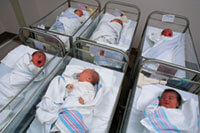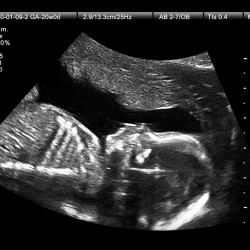Weights and Measures
An unprecedented study of childhood seeks answers to health problems.
Babies born during the coming years in certain neighborhoods of Wisconsin’s Waukesha County will be part of the biggest ever checkup on the health of the American child.
The National Children’s Study began this spring and will follow 100,000 kids — starting before conception and continuing to their twenty-first birthdays — in an effort to pinpoint the origins of a range of health problems. Samples of blood and umbilical cords will be saved at birth, and the children will have regular checkups as they grow. Waukesha County is one of 105 sites nationwide participating in the study, a collaborative project of the UW’s Waisman Center, the School of Medicine and Public Health, the Medical College of Wisconsin, and other agencies.
UW-Madison professor Maureen Durkin is co-principal investigator for the Waukesha study, which in time will include 1,250 children and their families. Researchers hope to learn how genes and the environment interact to influence health. One facet, for example, will explore whether dust mites in a mother-to-be’s mattress during pregnancy increase the likelihood that her baby will eventually develop asthma.
“Large-scale studies like this have the potential to yield insight into the development of conditions ranging from asthma to autism,” Durkin says.
Durkin’s university department, population health sciences, has conducted several long-range epidemiological studies. One looked at 253,347 children born during 1994 and found a link between older parents and children who developed autism, a pattern not apparent in smaller studies. Another, the Wisconsin Sleep Cohort, is a nationally renowned project that has followed the sleep patterns of hundreds of volunteers for twenty years; its research recently found that people who have sleep apnea, a condition in which they have breathing pauses during sleep, are dying at a much higher rate than those who don’t. The Beaver Dam Eye Study has monitored vision and hearing in generations of Wisconsin families.
This year, as Wisconsin babies come into the world and begin yielding lessons about our health, the department celebrates its own fiftieth birthday.
Published in the Summer 2009 issue



Comments
No comments posted yet.